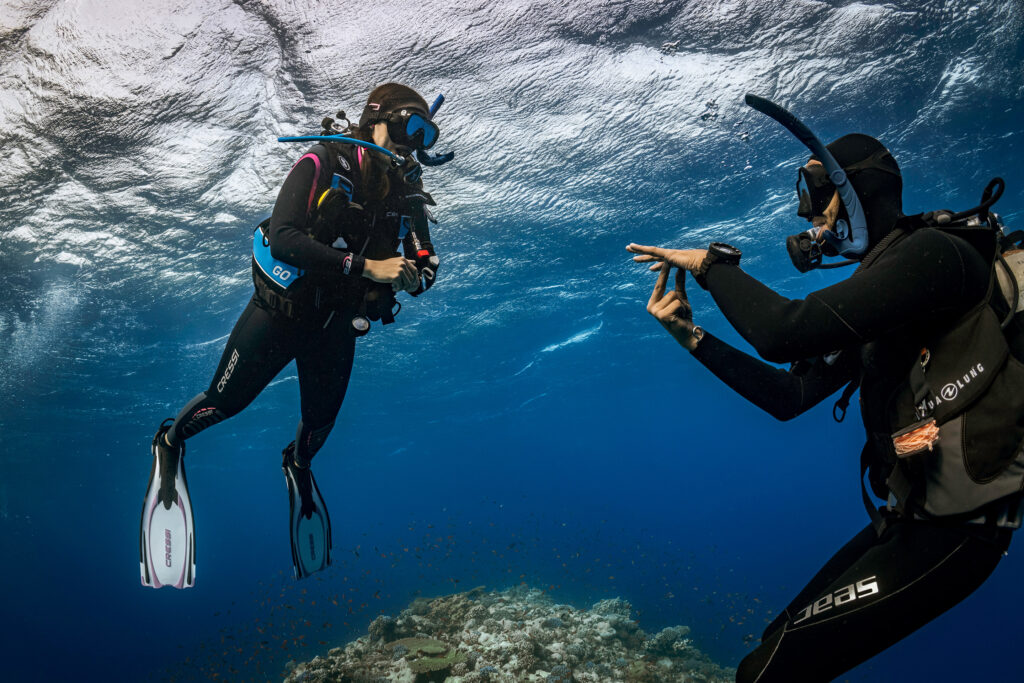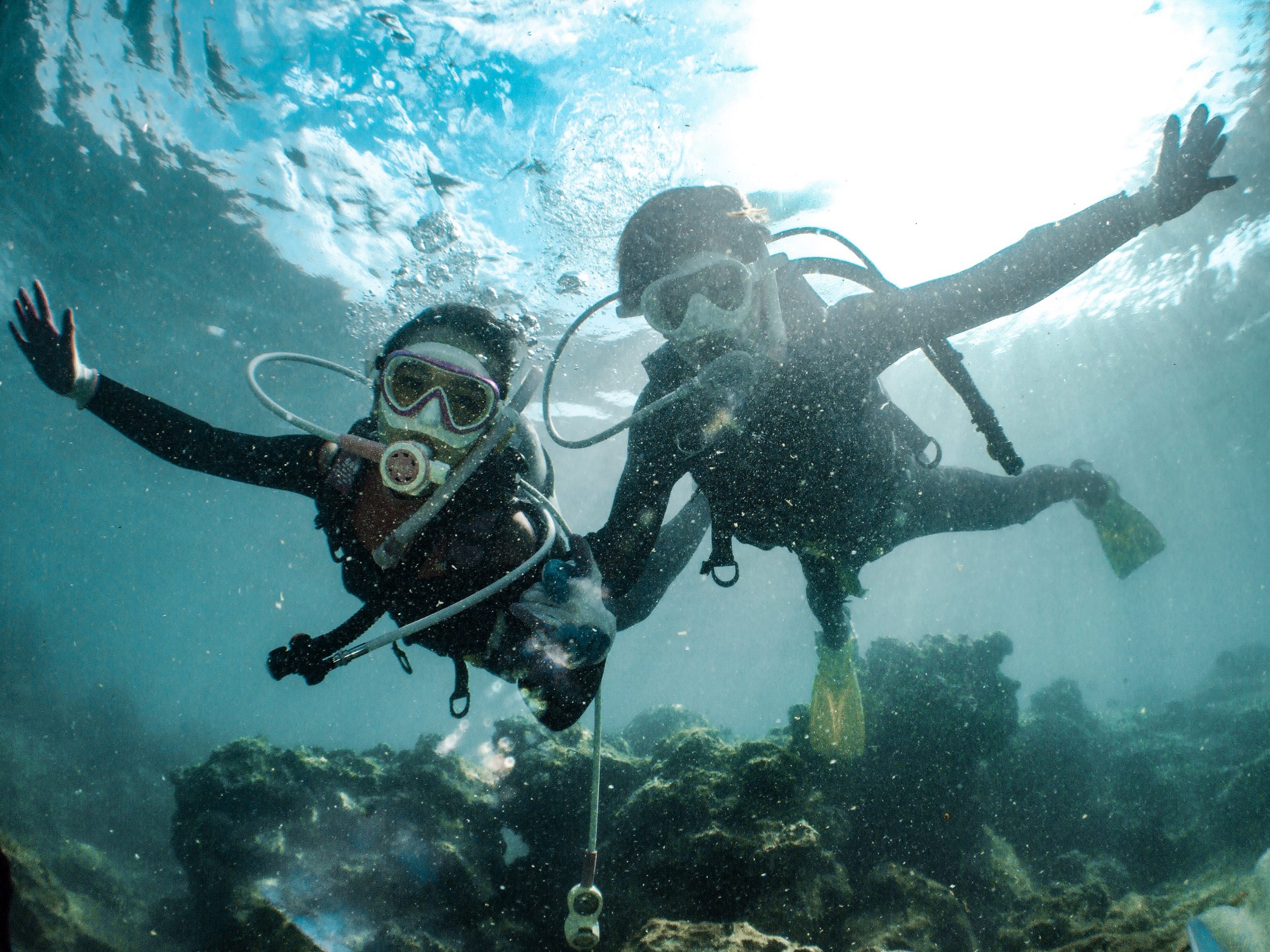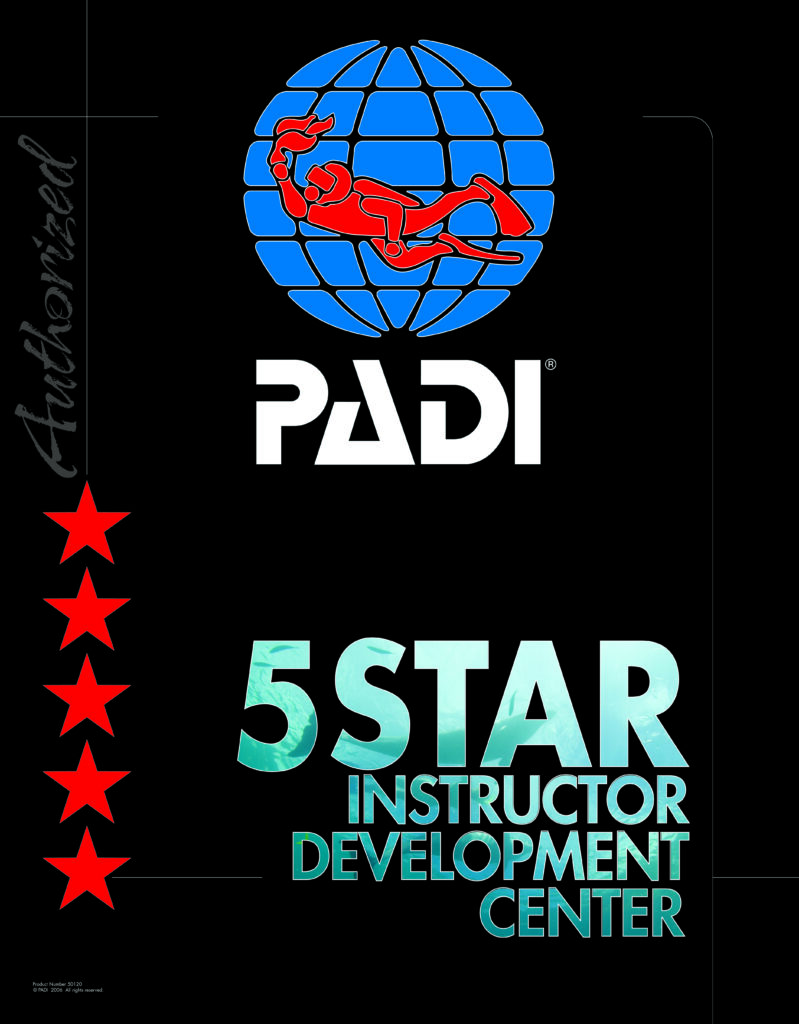Choosing the Right Diving School: Your Gateway to the Underwater World
Are you ready to take the plunge into the mesmerizing underwater world? Whether you’re a first-time diver or looking to advance your diving skills, choosing the right diving school is crucial to ensure a safe, enjoyable, and unforgettable experience. In this guide, we’ll walk you through key factors to consider when selecting the best dive school for your needs.
Why Choosing the Right Diving School Matters
Selecting a reputable diving school sets the tone for your diving adventures. A professional school ensures you gain proper skills, adhere to safety standards, and enjoy your dives to the fullest. Here’s what to look for when making your decision.
1. Look for PADI-Certified Dive Centers
PADI, the Professional Association of Diving Instructors is the world’s leading diving organization, recognized for its comprehensive training programs and safety standards. Opting for a PADI-certified dive center guarantees you’re learning from professionals who follow globally recognized best practices. Many dive centers worldwide, such as Bali Diversity Dive Resort, proudly adhere to PADI standards to offer divers a reliable and safe learning environment. Easiest way to find the closest PADI Dive Center near you is to check the PADI Website or download the PADI App and use the Dive Shop locator tool.
2. Consider the Location
The location of your diving school plays a significant role in your experience. Look for dive centers situated in areas known for suitable diving conditions for beginners, diverse marine life, and accessible dive sites. Whether you’re exploring coral reefs in tropical destinations, shipwrecks in colder waters, or unique underwater ecosystems, the location should align with your interests and skill level.
If you’re considering diving in Indonesia, the Amed and Tulamben regions offer some of the best dive spots in Bali, renowned for their vibrant coral reefs and the famous USAT Liberty wreck. As it is mostly shore diving, it is very convenient for beginner divers. Learn more about diving in these stunning locations on our dive sites website page.
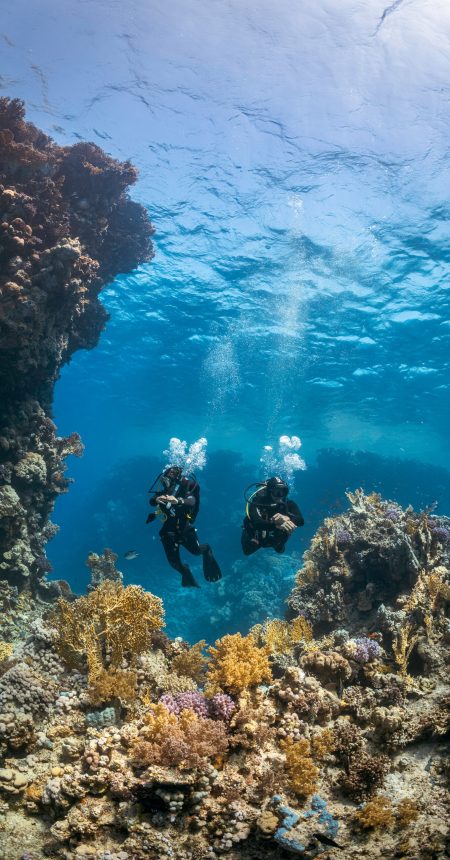
3. Check Instructor Qualifications
Experienced and certified instructors are essential for a safe and effective learning experience. Look for schools with multilingual professionals who prioritize safety and provide personalized attention. Ask about the student-to-instructor ratio to ensure you receive the guidance you need to build confidence underwater.
4. Inspect Equipment and Facilities
Safety begins with high-quality, well-maintained gear. A reputable dive center will provide equipment that is regularly inspected and meets safety standards. Additionally, check for facilities like classrooms for theory sessions, gear maintenance areas, and convenient rinse stations. Proper equipment and facilities ensure both safety and comfort during your training.
5. Explore Course Options
Choose a school that offers a variety of courses to match your goals:
Beginner Courses: Perfect for first-time divers.
Advanced Courses: Enhance your skills and explore deeper dive sites.
Specialty Certifications: From underwater photography to wreck diving.
Professional Programs: For those aspiring to become dive instructors.
A flexible dive school with diverse offerings allows you to tailor your diving journey. Learn more about our courses on our course page.
6. Read Reviews and Testimonials
Hearing from other divers can provide valuable insights. Browse online reviews or testimonials to learn about other divers’ experiences. Look for consistent positive feedback on factors like professionalism, safety, and overall satisfaction.
Check out what our divers have to say on our review page.
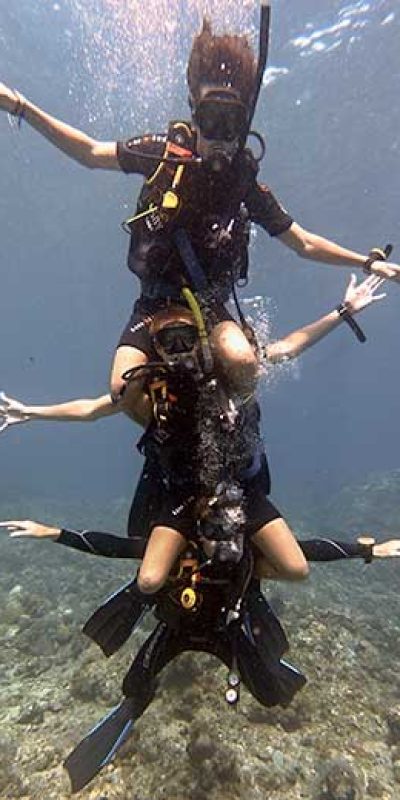
7. Evaluate the Atmosphere
The vibe of a dive center can greatly impact your experience. Look for a welcoming, inclusive, and relaxed environment that encourages learning and fun. Whether you’re traveling solo or with a group, a positive atmosphere can enhance your diving adventure.
8. Commitment to Sustainability
As divers, we have a responsibility to protect our oceans. Choose a school that demonstrates eco-conscious practices, such as reef-safe operations and marine conservation efforts. Many dive centers actively integrate sustainability into their practices to ensure a positive impact on the environment.
Learn more about our sustainability efforts on our eco-conscious diving page.
9. Cost Transparency
While cost shouldn’t be the only deciding factor, transparency matters. Compare course prices and inclusions, such as gear rental, certification fees, and additional costs like dive site entry fees. A reputable dive center will provide clear pricing without hidden charges. And remember, when it comes to safety and equipment, cheaper isn’t always better—just like you wouldn’t choose the cheapest airline or buy a car solely based on price. Investing in quality training and well-maintained gear can make all the difference in your comfort and safety underwater. For a breakdown of our costs, visit our pricing page.
For a breakdown of our costs, visit our pricing page.
Ready to Dive In?
Choosing the right diving school is the first step toward exploring the wonders beneath the waves. By considering these factors, you’ll be well on your way to finding a school that ensures your safety, nurtures your skills, and provides an unforgettable underwater experience.
Take your time when planning your dive training. Don’t rush it—diving is a skill that deserves both respect and patience. Look for a dive center that offers eLearning options so you can study theory at your own pace before arriving. When it comes to the practical sessions, everyone learns differently. Allow yourself the time to absorb and feel confident underwater. A 3-day course is often a good balance between your holiday or life schedule and the comfort needed to properly learn and enjoy the process.
Want to learn more about diving opportunities? Explore the courses and experiences available worldwide and consider diving with trusted PADI-certified centers like Bali Diversity Dive Resort.
